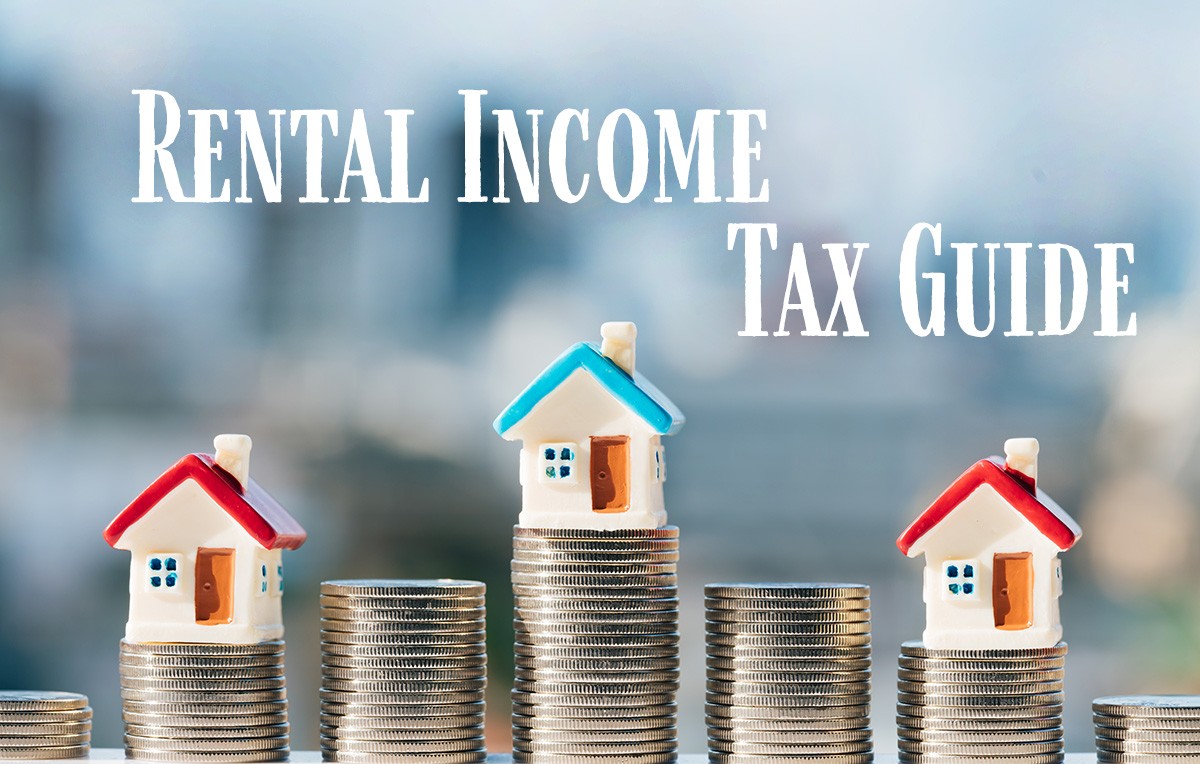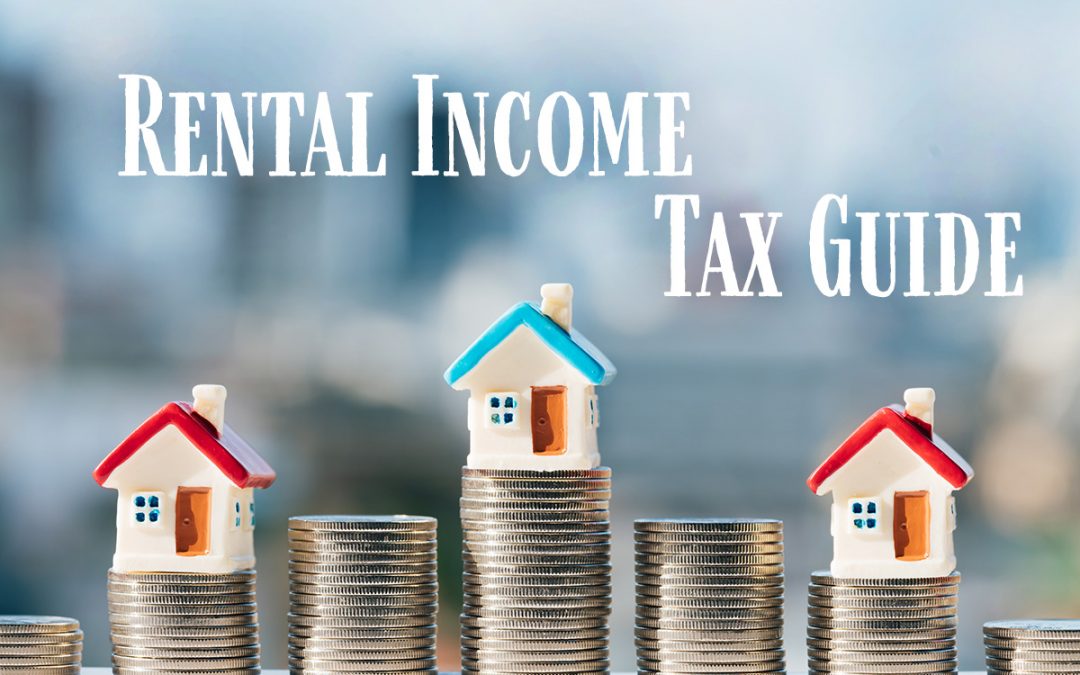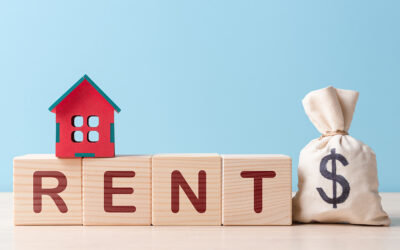
You’ll be happy to know that the U.S. tax code contains many incentives that assist real estate investors in maximizing the amount of rental income they keep in their pockets. These tax breaks are what set real estate investing apart from other investing endeavors and affords rental property owners the chance to build great wealth.
I have over 15 years of experience reporting rental income on my taxes. This has personally provided me with a great deal of knowledge regarding the best ways to reduce the amount of taxes owed on my real estate investments, and I’ll be sharing that knowledge with you today. However, everyone will have their own set of circumstances, so it’s always a smart idea to work with a certified public accountant who is experienced in rental real estate. They will ensure you’re doing everything possible to lower your tax burden as much as possible.
I know lowering your taxes on your rental income sounds perfect, but if you’re not familiar with taxes as it pertains to real estate, it can be a bit confusing. With that said, below, you will find information on the topic to help you along the way – information such as what is rental income, effective tax strategies, as well as getting started in real estate investing, and more.
What Is Considered Rental Income by the IRS?
Of course, it may seem obvious that rental income is the income you receive in the form of rent checks each month from your tenants. Although this is true, there are a few more details to factor in. First, in the words of the IRS, rental income is any payment received for the use or occupation of a property. Second, the IRS states that rental income also includes security deposits, but only if they are not returned to the tenant, lease cancelation fees, advanced rent, and any expenses that the tenant pays on the investor’s behalf.
Rental Income 101 – Basic Tax Information
Let’s get started on the basics of rental income and taxes. This will provide you with the foundation that will allow you to easily move forward with reducing your tax burden, and also enable you to be more prepared when meeting with your CPA.
Here are a few basic tax-related questions and answers that may be helpful:
Do I Have to Report Rental Income to the IRS?
Just as with any income earned, you must report rental income to the IRS. Additionally, if the money you generate from your rental home is not reported to the government, and they realize this, there may be hefty fines, interest penalties, and liens. Also, if the taxes the IRS is trying to collect is not paid, after a certain amount of time passes by, the collection process might include seized bank accounts and garnished wages. My advice is, “don’t mess with the IRS”, and be sure to report your rental income.
How is Rental Income Taxed?
For those of you who are wondering how the money generated from an investment property is taxed, or if you’re asking yourself, “how much tax do I pay on rental income?”, know that rental income is still just income, and therefore, taxed as such. Although, with just a few exceptions, it’s considered taxable as passive income by the IRS. This allows for some additional tax benefits that other types of earned income do not qualify for.
In addition to this, you’re not taxed on the full amount of income that comes in for the year, but instead, taxed on the final “net rental income”. Because of this, if done correctly, you may end up owing zero in taxes.
What is Net Rental Income?
Instead of being taxed on the entire amount of rental income you generate in a particular year, you’re taxed on what is called the net rental income, also referred to as net operating income (NOI). This is the income you are left over with after all your expenses have been accounted for, and any other elements that can reduce your income have been factored in.
Your NOI is what can determine how much you owe in taxes. For instance, imagine making $100,000 a year in rental income, and then being taxed a marginal tax rate of 24% on that full amount, and then owing $24,000! Now, imagine making that same amount for the year, but factoring in all your expenses, and owing zero, or close to it.
This may give you a bigger picture of why it’s so important to be on top of your game when it comes to understanding the relationship between rental income and taxes. With that in mind, let’s dive into some tax strategies that will help you hold on to your money instead of sending it off to the IRS.
Implementing Investment Property Tax Strategies
There are many smart tax strategies that can lower the amount you end up owing to the government, and in turn, maximize your return on investment (ROI). I’m going to discuss the most effective ways you can achieve this as a real estate investor, starting with creating a strong foundation to build upon, which is getting set up as an entity.
Before you jump into these tax-saving strategies, you can get ahead of the game by watching this video on reducing your taxes:
1. Set Up a Legal Entity to Hold Your Real Estate Investments
One of the most important things you can do is get your real estate business set up as an entity, more specifically, an LLC. This is an ideal setup that allows you to avoid rental income being taxed personally.
Forming an LLC to hold your rental homes will enable you to funnel all expenses through the company, and be taxed as a business. All of this creates a situation where you are able to take advantage of some amazing tax benefits you would otherwise not have access to.
An LLC Will Protect Your Assets
You would never want to run your rental business under your own name/personal taxes, not just because you will owe so much more in taxes, but also for liability reasons. An LLC will add an extra layer of protection to your investment business. A perfect example would be if one of your tenants were to fall due to loose gravel on the premises. If you don’t form an entity, they can come after you personally, and possibly take any assets you own.
What Type of Legal Entity is Best?
My CPA and attorney have recommended an LLC for my particular situation. However, you should speak with your CPA to ensure you set up the type of entity that’s right for you. In regards to forming an LLC, it’s very easy to set up, in some cases, it will take under 15 minutes.
It’s best to form the LLC within the state that the income property sits in. This can be accomplished through the Department of State website that represents the state you would like to set up the entity in.
Ultimately, the bottom line is that you will save thousands of dollars in taxes just by setting up an LLC or other entity to hold your rental homes. For a general overview of Limited Liability Companies, you can view Legal Zoom’s LLC informational page.
2. Lower Your Taxable Rental Income with Deductions
One of the most widely used rental income tax strategies is deducting certain expenses on your tax return. As the IRS states, “you can deduct the ordinary and necessary expenses for managing, conserving and maintaining your rental property”. This is where your NOI comes into play. You start out with a set amount of rental income that you generated for the year, but items like repairs, mortgage interests, operating costs, and so on, chip away at this number.
The final number (rental income minus the deductions, and other elements) is what you are taxed on. With that in mind, let’s find out what deductions you can take when you own a rental property.
Example of Common Deductions that are Taken:
- Closing Costs (if purchased in the same tax year)
- Property Taxes
- Repairs (supplies & contractor fees) that keep your property in a rentable condition
- General Maintenance
- Interest
- Advertising
- Utilities
- Insurance
- Property Management Fees
- Property Related Local and Long Distance Travel (mileage, airfare, hotels)
- Business Related Meeting Expenses (meals/supplies)
- Professional & Legal Services
- Home Office Deduction (information for simplified home office deduction by the IRS)
- Casualty Losses Such as Theft/Vandalism, Fires, Floods, and the Like (certain stipulations apply such as how much was covered by insurance and if the property was fully or partially destroyed)
Qualified Business Income Deduction (QBI)
Not too long ago, the Tax Cuts and Jobs Act put a new tax deduction in place (QBI), also referred to as a 20% Pass-Through Deduction. It allows qualified real estate investors to deduct 20% of their taxable income.
Only those who have pass-through income would be eligible for this deduction, which is the case when an entity is formed (passing the expenses through your entity), such as an LLC, S Corp, Partnership, and Sole Proprietorship. An additional qualification is that the investor’s taxable income is below $157,500, or $315,000, if filing as a married couple.
If you realize that taking this deduction can save you a bundle of money, but you’re not set up to create pass-through income yet, then the first step is to create a legal entity to hold your rental properties, as mentioned in step one. For those who would like to get some additional advice and help setting up an LLC, or other entity, I recommend contacting Garrett Sutton.
I personally use his services for my real estate business, and highly recommend him. If you move forward with utilizing his services, just mention Morris Invest and he will provide you with a $100 discount.
Always Consult with Your CPA Regarding Current Tax Codes
Please note that at the time this article was written, there has been some talk regarding possible changes that may affect the way pass-through entities are taxed. Specifically, a possible elimination of the 20% pass-through deduction for those with an income that’s over $400,000. With that in mind, speak to your CPA so you are up to date with the latest tax changes.
Additionally, this topic can be an entire article in itself, so head over to the Internal Revenue Service’s Facts About the Qualified Business Income Deduction page to get all the details.
3. Keep More Money in Your Pocket Through Depreciation
If you’re not familiar with rental property depreciation, you’ll be happy to know that as a real estate investor, it can save you thousands of dollars. With that said, let’s find out more and begin with a basic question to get you started:
What is Depreciation?
Depreciation, as it pertains to real estate, is a non-cash tax deduction that enables an investor to depreciate the value of their rental property (but not the land it sits on), over an extended period of time – 27.5 years. The IRS allows this with the understanding that the property will “depreciate”, wear out, or decline in value over this timeframe.
The 27.5 years is what the IRS declares as the useful life of the property, and therefore, allows the investor to recoup some of that loss. However, as property investors, we know that rental real estate actually increases in value over time, as well as remains in a good rental condition (as long as normal maintenance is kept up). Even so, depreciation is a legal tax break that is set up by the IRS and is utilized by real estate investors. Its main benefit is lowering the rental income that you are taxed on so you can keep more money in your pocket.
How to Calculate Rental Property Depreciation
Doing a quick calculation of the depreciation is pretty simple:
- Step 1: Determine the real estate value of the building only, since the land is not an allowable depreciation. For example purposes, we will say that the building value is $150,000.
- Step 2: Now divide the building value of $150,000, by the total number of years the IRS has designated, which is 27.5. The total comes to a $5,454 annual depreciation.
- Step 3: You then subtract the annual depreciation amount ($5,454) from the annual rental income, which is, let’s say, $8,000, and you are left with $2,546 in taxable rental income.
The bottom line is that without factoring in depreciation, this investor would have paid taxes on $8,000. With depreciation calculated, the investor will now only have to pay taxes on $2,546 – this is the beauty of depreciation! Also, keep in mind that this number will be even lower since the investor would also deduct their expenses.
If this sounds like an outstanding tax break that you would like to take advantage of, you’re probably wondering what the requirements are. Head over to the IRS website to view the qualifications in the Depreciable or Not Depreciable section of the page.
Be sure to watch the video below for a great summary of rental real estate depreciation:
Lower Your Taxable Rental Income Even More with Faster Depreciation Rates
The building is depreciated over the span of 27.5 years, but what about the building’s contents and other property elements? The Internal Revenue Service will allow real estate investors to depreciate certain aspects of the rental property much faster, with timeframes of five to fifteen years.
This can be done with a professional cost segregation study. However, it typically makes sense to perform a study when you have multiple properties to offset the fee to perform the evaluation. Alternatively, if you purchase a new rental property from a full-service investment company such as Morris Invest, a new construction cost segregation analysis is included.
Let’s take a look at this topic a little closer, specifically focusing on new construction rental properties:
What is a Cost Segregation Study and How Does it Accelerate Depreciation?
A cost segregation study, as it relates to the new construction of a rental property, focuses on an analysis of the non-structural components of the property. In other words, it reclassifies certain elements from (Real Property – Section 1250), which has a depreciation time frame of 27.5 years, to a new tax classification (Personal Property & Land Improvements – Section 1245), which is eligible for an accelerated depreciation timeframe. This allows the investor to reap the benefits of significantly lowering their overall rental income that they would be taxed on, sooner rather than later.
Here are a few examples of items that can be quickly depreciated to allow you to hang on to more of your rental income:
- Building Components such as kitchen cabinets, flooring, window treatments, appliances (5-year depreciation)
- Site Work/Land Improvements such as gravel, driveway, landscaping, concrete porch, fencing (15-year depreciation)
You’re in the business to generate rental income, not give it to the government. With that in mind, a cost segregation study can save you so much money in taxes, that it’s well worth looking into. This is a big topic, so if you would like to learn more, read our easy-to-understand article on the subject – The Power of a New Construction Cost Segregation Study Can Save You Thousands.
4. It all Really Starts with Proper Tax Planning
You have learned about the best tax strategies you can utilize to hold on to as much rental income as you can, but in reality, it all starts with excellent tax planning. Proper planning will allow you to always know where you are with your taxes, so there are no surprises. It will keep you on top of your game so you can significantly lower your tax burden, or even better, end up owing nothing to the IRS.
Year-Round Tax Planning
Tax planning should start on Jan. 1st and continue throughout the year. Additionally, it’s best to work with an experienced rental real estate CPA who knows what tax strategies to use.
When it comes to tax planning, you won’t want to deal with it yourself if you’re not experienced with taxes and rental income. With that said, I recommend utilizing an expert in the field, Tom Wheelwright of WealthAbility. I personally have used him and recommend him to all my fellow investors. He’s also the personal tax advisor to real estate giant, Robert Kiyosaki. You can dive into Tom’s book on the topic, it’s called Tax-Free Wealth. It will provide you with many insider real estate tax tips.
End-of-Year Tax Planning
For those who are reading this article late in the game and the tax year is almost complete, it’s not too late. You can still keep more rental income in your pocket by doing some end-of-year tax planning. Talk to your CPA for the best tax strategies for your situation.
One end-of-year tip I’ve received is to secure all big purchases before the end of the year. So, if it’s the first week in December, don’t wait, buy those big items that you need for your rental property in that same tax year. Even make sure to pay all your rental property legal fees, contractor fees, and the like, before the new year hits. This way, you won’t have to wait an entire year to write it off.
Also, if you have been thinking about making a rental property purchase, buy before the year ends so you can cash in on all the tax benefits for that same year, and not have to wait. If you feel there is not enough time to buy before the new year hits, don’t worry, it’s actually very easy to make happen. Read over this article on how to buy a rental property before the end of the year that explains how easy it is.
For those who are interested, dive into this video that contains some essential end-of-year tax planning:
Frequently Asked Questions
At Morris Invest, we receive many questions from real estate investors on a daily basis. Here are two recent inquiries on the topic of rental income that you may be interested in:
How Much Profit Should You Make on a Rental Property?
If your rental income, minus all expenses, equals $100 in profit each month, then you’re in good shape because you are still in the profit zone. Of course, as a smart business person, you will always want to strive for more – $300, $400, $500. If you would like more information on this question, read our article titled – How Much Profit Should You Make On A Rental Property?
Is it Possible to Live Off Rental Income?
Yes, many investors live solely off their rental income. The number of income properties you need to support yourself will really depend on what your expenses are. After you know how much money you require each month based on your expenses, you can then calculate how many rental properties will be needed to leave your day job or retire.
We actually have a whole article dedicated to this topic; take a look if you would like to learn even more about living off of rental income. You can also take a shortcut and use our free Freedom Cheat Sheet to calculate your freedom number (the number of rental properties you will need to live off rental income).
Also, feel free to watch this video on the topic of how to live off rental income:
Additional Real Estate Articles by Morris Invest
For those who are just beginning their journey generating rental income, as well as seasoned investors, we welcome you to read through our real estate articles. You will find a wealth of information pertaining to successfully investing in rental properties:
- Tax Tips That Will Let You Keep More of Your Rental Income
- Learn About Equity and How it’s Used to Increase a Rental Portfolio
- Find Out Which is Better – Stocks or Real Estate Investments
- Dive into this Estate Planning Post So You’re Prepared
- Learn about Cash Flow as it Pertains to the BRRRR Method
- Learn Why Turnkey Properties are a Good Investment
- Reasons Why Texas Real Estate is Less Expensive
- Learn More About Buying Properties with Multiple Investors
- Start Using the BRRRR Method to Quickly Grow Your Rental Portfolio
- Find Out Why a Cost Segregation Study is Worth It
Work with a Full-Service Investment Company to Start Generating Rental Income Immediately
Whether you want to quickly buy another rental property before the end of the year to accelerate your tax savings, or purchase one any time of the year, working with a full-service real estate company is the best path to take.
A full-service investment company such as Morris Invest makes owning a rental property simple. On top of that, we have many years of experience, and therefore know how to maximize your rental income with the proper tax strategies. For instance, we include a cost segregation study with all our new properties, saving you thousands in taxes.
We take care of every single detail for you – from setting up a self directed IRA where you can purchase a rental property with your retirement funds, to placing a property manager and tenant for you. You don’t have to worry about renting a house out to someone, or anything that goes along with obtaining a rental property – we will handle it for you. Feel free to schedule a complimentary call if you would like to talk to a professional about purchasing a cash flowing rental property.
Use Our Tax Tips to Maximize Your Rental Income & Your Real Estate Portfolio!
Being a smart real estate investor means always keeping on top of your game when it comes to maximizing your rental income. As mentioned, you can do this with effective tax strategies, and most importantly, proper tax planning. So, for those seasoned investors looking to keep more of their rental property cash flow, or someone who is just starting out, we hope our rental income tax guide has been helpful.
Ready To Build Passive Income Through Rental Real Estate?
Ready to talk about your goals? We're here to show you the tools and teach you the process to begin earning legacy wealth for you and your family.









